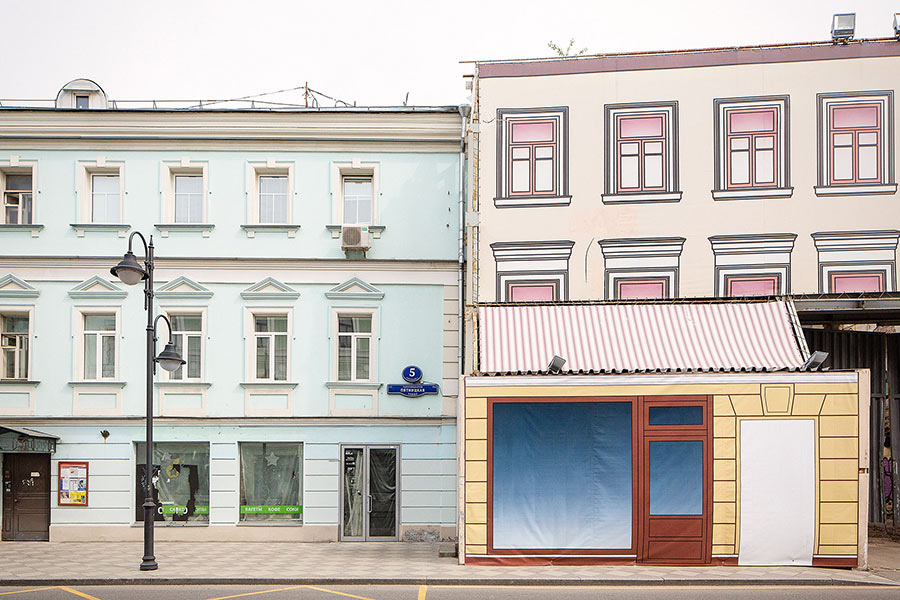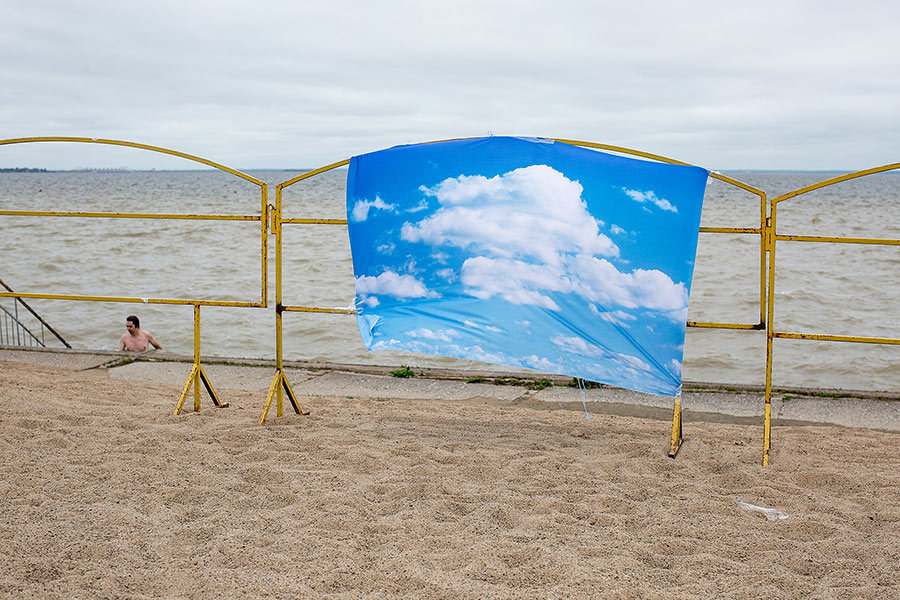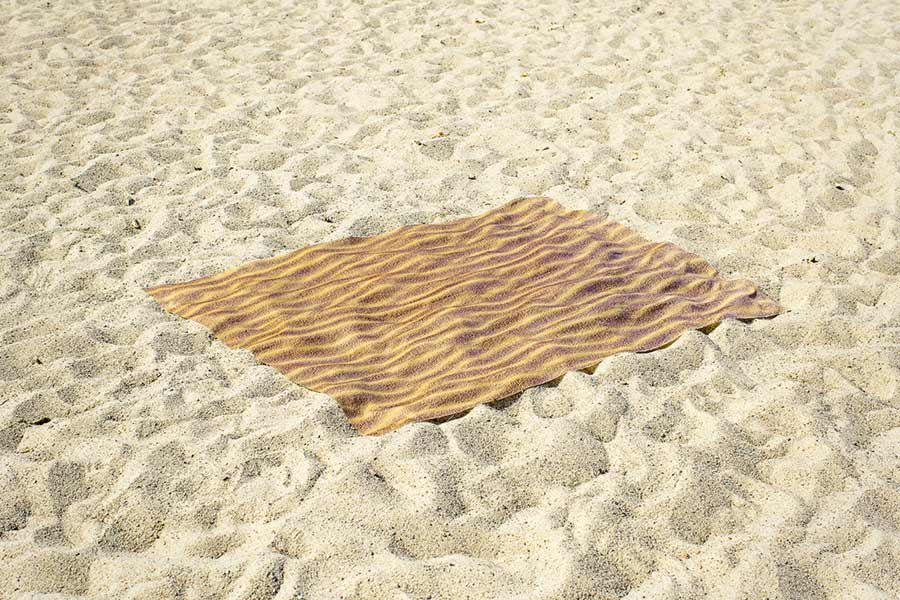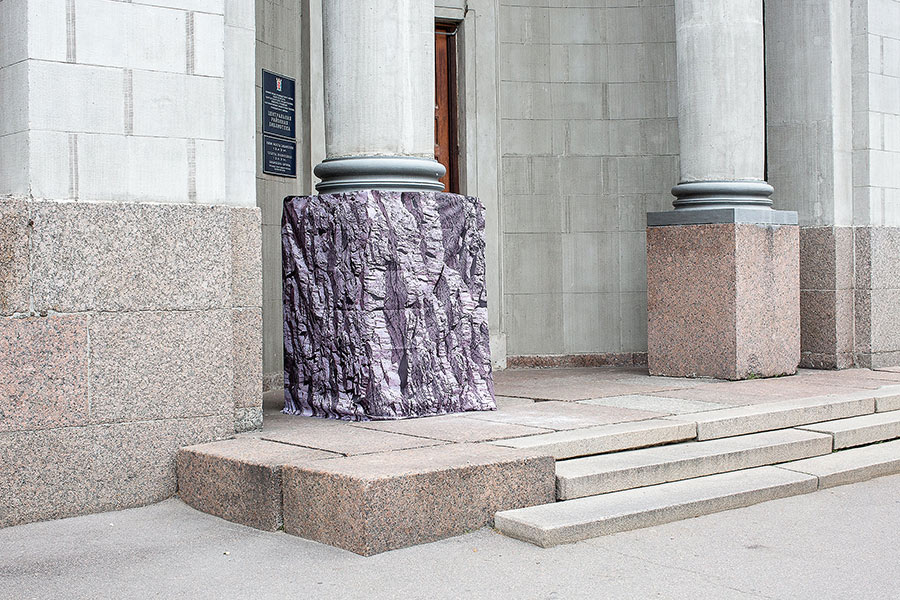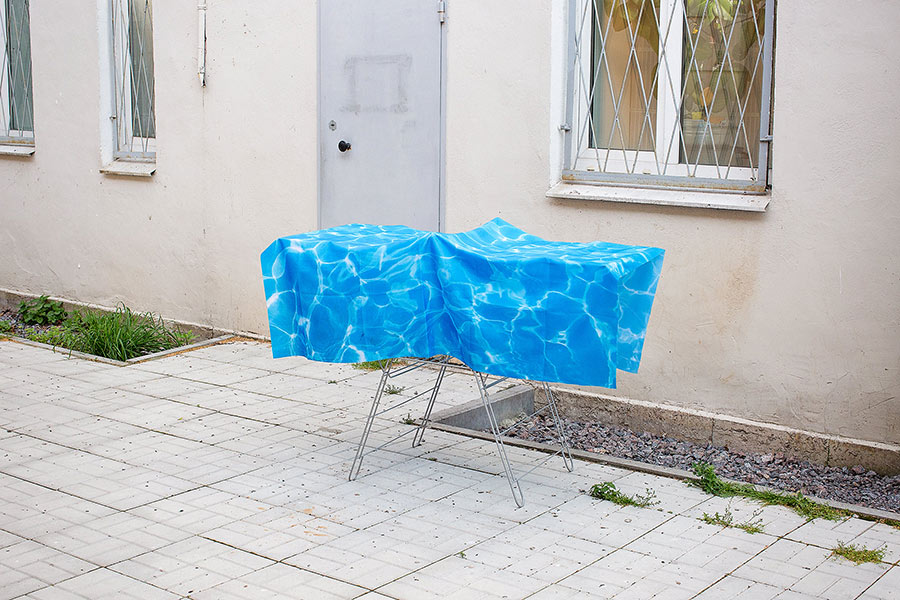What Things Are Not
YEAR
2016 – ongoing
RESEARCH
National Center of Contemporary Arts
St. Petersburg
LOCATIONS
Russian Federation, United Arab Emirates, USA, Europe
Identity and landscape
Exploring and analysing landscapes is an indirect anthropologic research, offering the possibility to study local populations and their behaviours, in which direction society is going and which compromises it is willing to make.
Landscape speaks and tells a lot, but what happens to identity and memory when landscape lies?
The project started during a residency at NCCA St.Petersburg which offered a base to explore and document contemporary aesthetics of temporary spaces, the approach to city-making, focusing on the potential of things – or promises – rather than their actual nature, to then develop further in Europe and the USA, and in the UAE following a 3 months residency at Al Hamriyah Studios, Sharjah Art Foundation.
The series is composed by documentation of sites and objects in their idealised state, CGI images applied to surfaces, and installations made by printing stock images downloaded from the net and positioned in public space, melting natural and digital landscapes. What is the the difference between representation and reality? Which social engineering practices can benefit from the use of non-commercial communication in public space? What are the mechanics of a perpetual flow of reassuring images both online and offline, in the creation of an unbreakable aurea for the current Neoliberal ideology?
Textured banners covering building-sites in public spaces are often seen all across the world, they cover housing complexes, monuments and historical heritage and they change the meaning of places especially when building or restoring activity lasts for long periods. What does a monument become when it’s temporarily covered in a marble decoration? Is it the same monument temporarily unavailable or a completely new monument with a new meaning?
Political events lead to wars of rhetorics: powers portray reality in very different ways according to their own convenience, to build identity or frame the perception of reality. The neoliberal narration of ‘progress’ and ‘evolution’ doesn’t care if the substance of things is water, a photography of water, a 3D rendering of water or an AI generated water texture: it’s a sneaky ideology, with as many symbols as corporations logos, and as many places to exists and propagate itself as areas it privatised.
What the project highlights isn’t only the nature of things and why they appear the way they do, but also why their presence is concealed or their absence is manifested, forcing a critical approach to landscape reading to challenge narrations.
‘What things are not’ is at the same time a way to reflect on the relevance of photography in the information age, characterised by a massive production and consumption of visual content, where images take over the narration of the present regardless of their truthfulness. What are the terms of representational value? Which kind of effect the representation of reality has on reality itself?

